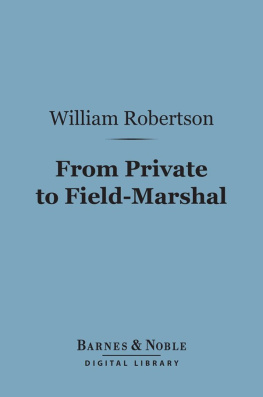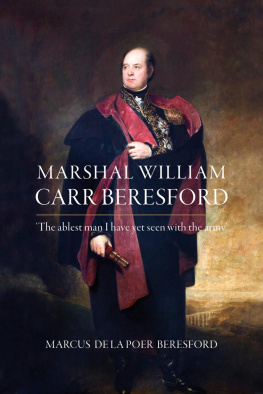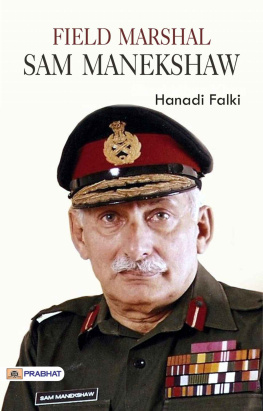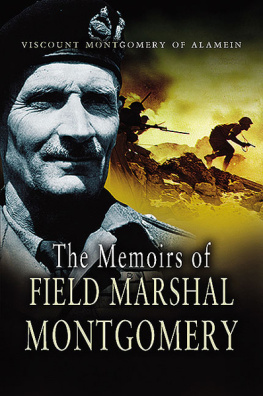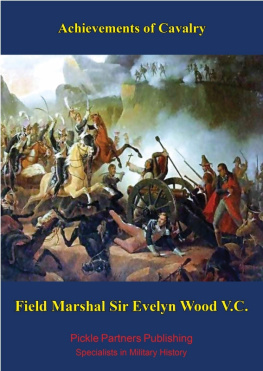This edition is published by ESCHENBURG PRESS www.pp-publishing.com
To join our mailing list for new titles or for issues with our books eschenburgpress@gmail.com
Or on Facebook
Text originally published in 1931 under the same title.
Eschenburg Press 2017, all rights reserved. No part of this publication may be reproduced, stored in a retrieval system or transmitted by any means, electrical, mechanical or otherwise without the written permission of the copyright holder.
Publishers Note
Although in most cases we have retained the Authors original spelling and grammar to authentically reproduce the work of the Author and the original intent of such material, some additional notes and clarifications have been added for the modern readers benefit.
We have also made every effort to include all maps and illustrations of the original edition the limitations of formatting do not allow of including larger maps, we will upload as many of these maps as possible.
THE MEMOIRS OF MARSHAL FOCH
TRANSLATED BY
COL. T. BENTLEY MOTT
Liaison Officer between Marshal Foch and General Pershing
ILLUSTRATIONS
Marshal of France, August 23, 1918
Marshal Foch at His Desk at the Invalides
Grandfather Foch at His Country Home in Brittany
Five Facsimiles of a Manuscript Page of the Memoirs
Four Stages in the Marshals Career
The Twentieth Army Corps before the Battle of Ypres, 1914
A Conference behind the Battle Lines of Flanders, 1914
Joffre and Foch at an Instruction Camp behind the French Front
A Church Becomes a Hospital for the French Wounded
Algerian Troops Answer the Call to the Colours
Tomblike Labyrinths of the Trench Lines
One Must Eat!
A Captured German Battery
A French Infantry Regiment Advancing to the Firing Line
Generals Joffre, Foch, and Wirbel, in 1915
Foch and King Albert of the Belgians
General Pershing Arrives in France, June 13, 1917
Pershing Visits the Grave of La Fayette
An American Camp in France
An American Tent Camp near the Argonne Forest
Naval Guns on the Western Front
Flowers for British Soldiers in France
Sappers Wearing Gas Masks in the Danger Zone
General Foch and the Interallied Staff at Sarcus, April, 1918
General Foch and General Weygand, His Chief of Staff
Commanders of the Allies in 1918
Foch and Pershing at Chaumont, June 17, 1918
At Pershings Headquarters in Chaumont, June 23, 1918
Facsimile of a Much-corrected Page in Marshal Fochs Manuscript
Marshal of France, August 23, 1918
The City of Cambrai in the Hands of the Allies
Marshal Foch after the War, at His Chteau near Marlaix, in Brittany
The Funeral of Marshal Foch, March, 1929
Marshal Foch, Entering Strasbourg, Salutes the Statue of General Klber
Lorraine Welcomes the French Armies, November 10, 1918
During the Armistice Negotiationsthe French Railway Train in the Forest of Compigne
In the Armistice Car of Marshal Foch
General Fochs Headquarters in Senlis
Marshal Foch and His Companions Leave for Paris with the Signed Copy of the Armistice
The Last Page of the Armistice Agreement
Foch in the Rhineland, May, 1919
Foch Leading the French Troops in the London Victory Parade
MAPS
Retreat of the Foch Army Detachment
The Ninth Armythe Battle of the Marne
The Ninth Armythe Pursuit
The Ninth ArmyStabilization of the Front
Situation of the Allied Armies, October, 1914
Battles of the Yser and of Ypres
General Disposition of Allied Forces in the North, April, 1915
Situation of the Allied Forces when General Foch Took Command
German Offensives
Allied Offensives
The March to the Rhine
TRANSLATORS INTRODUCTORY NOTE
DURING ALL THE TIME THAT MARSHAL FOCH COMMANDED the Allied Armies I served at his headquarters, having been appointed by General Pershing as liaison officer between him and the Marshal. General Weygand was chief of staff, Captain Boutal was aide-de-camp, and Captain Pupier attended to the non-military matters in the Marshals ever increasing correspondence. These and a few other officers took their meals with the Marshal, while the rest of the staff, about a dozen in number, had a mess of their own, to which were invited the Italian, Belgian, and American liaison officers. The British mission, headed by that admirable soldier, Lieutenant-General Sir John Du Cane, being quite numerous, messed in their own house.
Headquarters were first established during April, 1918, in the tiny village of Sarcus north of Beauvais; from there we moved to the Chteau de Mouchy and then to Bombon, not far from Provins, the headquarters of General Ptain. Bombon was also within easy reach of Chaumont, where General Pershing was installed. In October we were at Senlis, thirty miles north of Paris, and here the Armistice found us. All of these changes were dictated by the necessities or conveniences of the operations; but the first two relieved us of the annoyance of incessant bombardment by German aeroplanes.
A peculiar requirement always dictated the choice of the house in which to establish the Marshal: steam heat. He lived and worked in an atmosphere that was stifling even to an American, and if we saw Major Bontemps in a particularly bad humour we knew that the temperature of headquarters had fallen below eighty and the Marshal had told him in vigorous terms his feelings on the subject.
It can well be imagined that I have no thought of making an estimate of Marshal Fochs powers or of describing his processes; but as the characteristics of his person are less known in English-speaking countries than in France, it may not be out of place to indicate some of them.
A good deal has been said about the ties which united the Marshal and General Weygand. The two men constituted the most efficient team for the conduct of a great war that history has reported; moreover, confidence and affection bound them as closely together as did community of ideas. It was not so much that Foch conceived and Weygand executed, as was the case with Lee and Stonewall Jackson, but rather that the two minds seemed to constitute a single entity whose capacity was double that which any man working alone could furnish.
General Weygand once said to me, The Marshal is the locomotive; I am the tender that furnishes him with coal and water. I do not think this image gives a true idea of their relationship. It was more like a chemical union, whereby two distinct elements produce a substance having characteristic qualities of its own. I doubt if General Weygand ever paid the Marshal a compliment, and probably the Marshal at no time ever expressed in words to the General what he thought about him. It would have been like saying handsome things to ones self.
The Marshal certainly felt a profound satisfaction when success crowned one of his plans, but if at any time he spoke of such matters to one of us, we seemed to be listening to some impersonal force expressing itself rather than to a man telling about what he had done.





